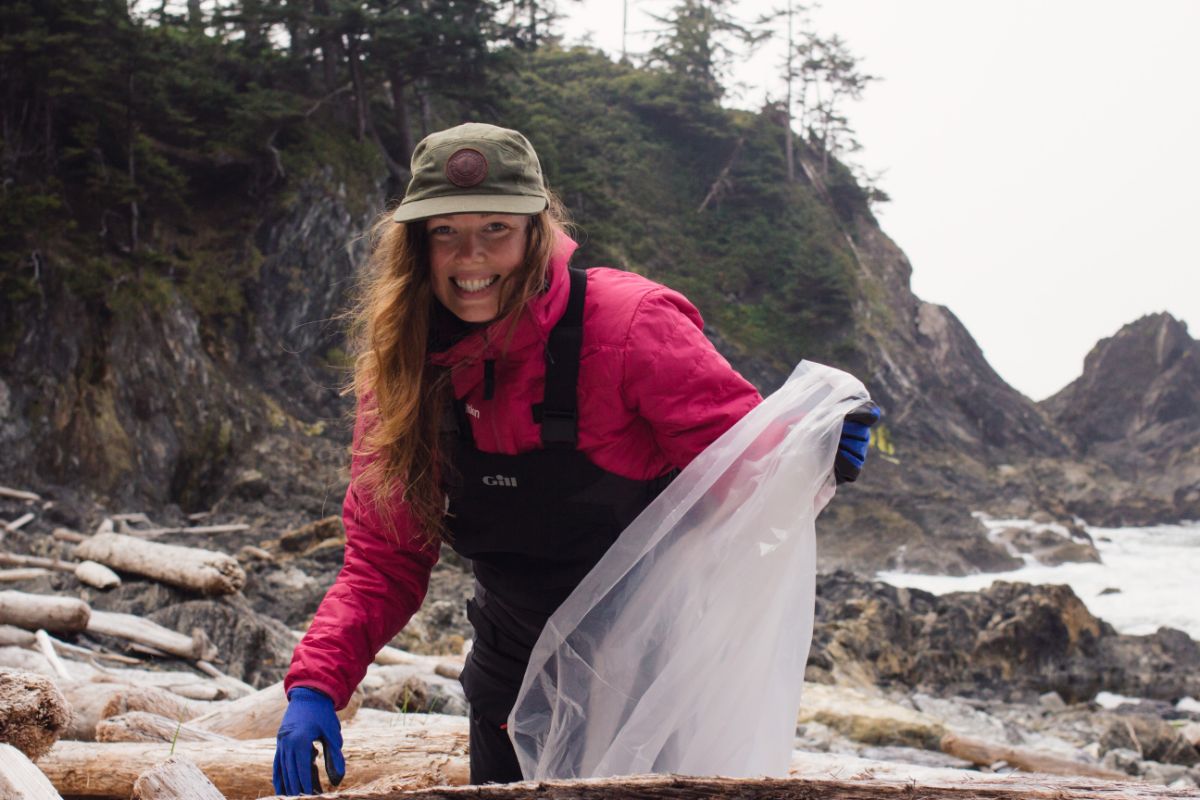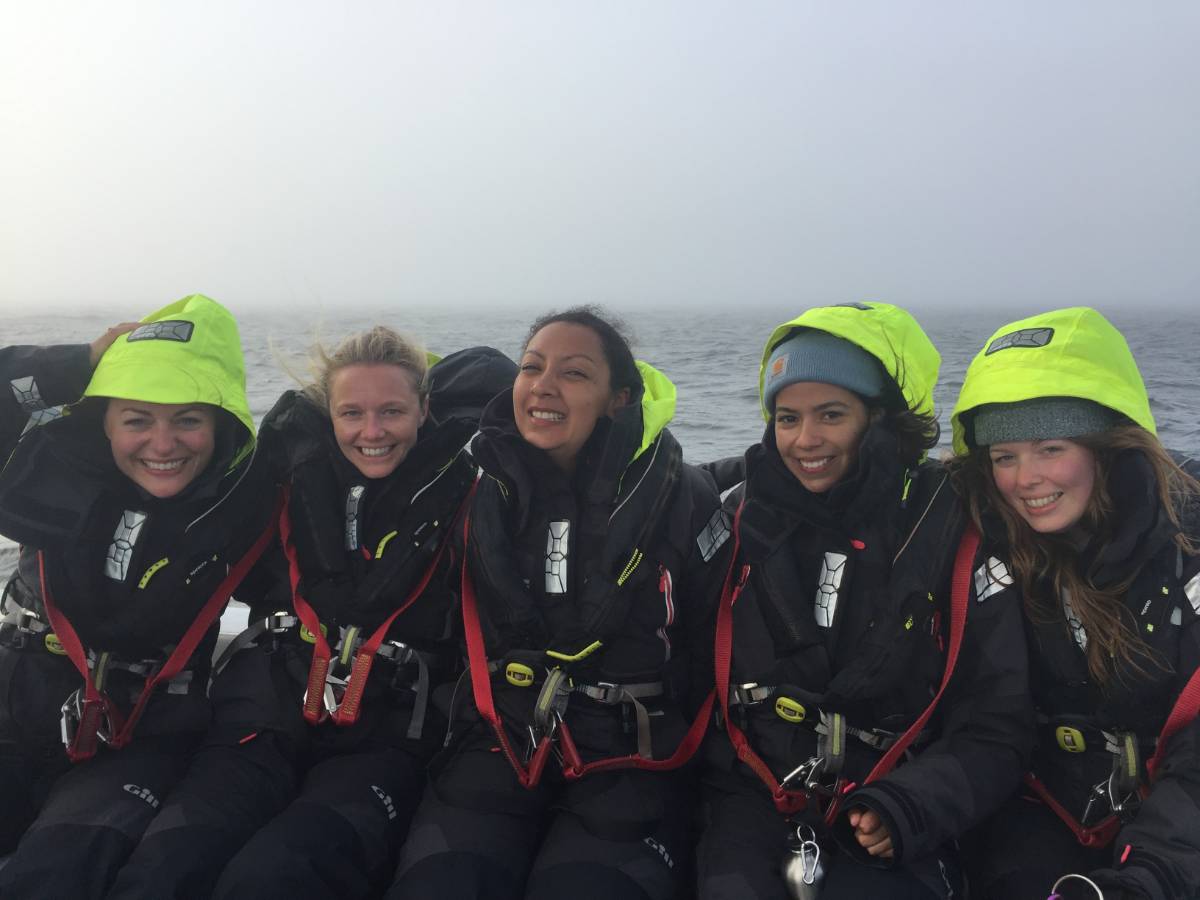Meet Nikkey Dawn, storyteller, photographer, and marine debris expert! We caught up with Nikkey about the action she has been taking since her North Pacific Leg 2 Voyage. Whether it be educating water-sports community groups about plastic pollution, or inspiring people through her writing, ocean-lover Nikkey has been busy using her storytelling superpower to inspire others into action.
Keep reading to find out more about Nikkey’s change-making journey.
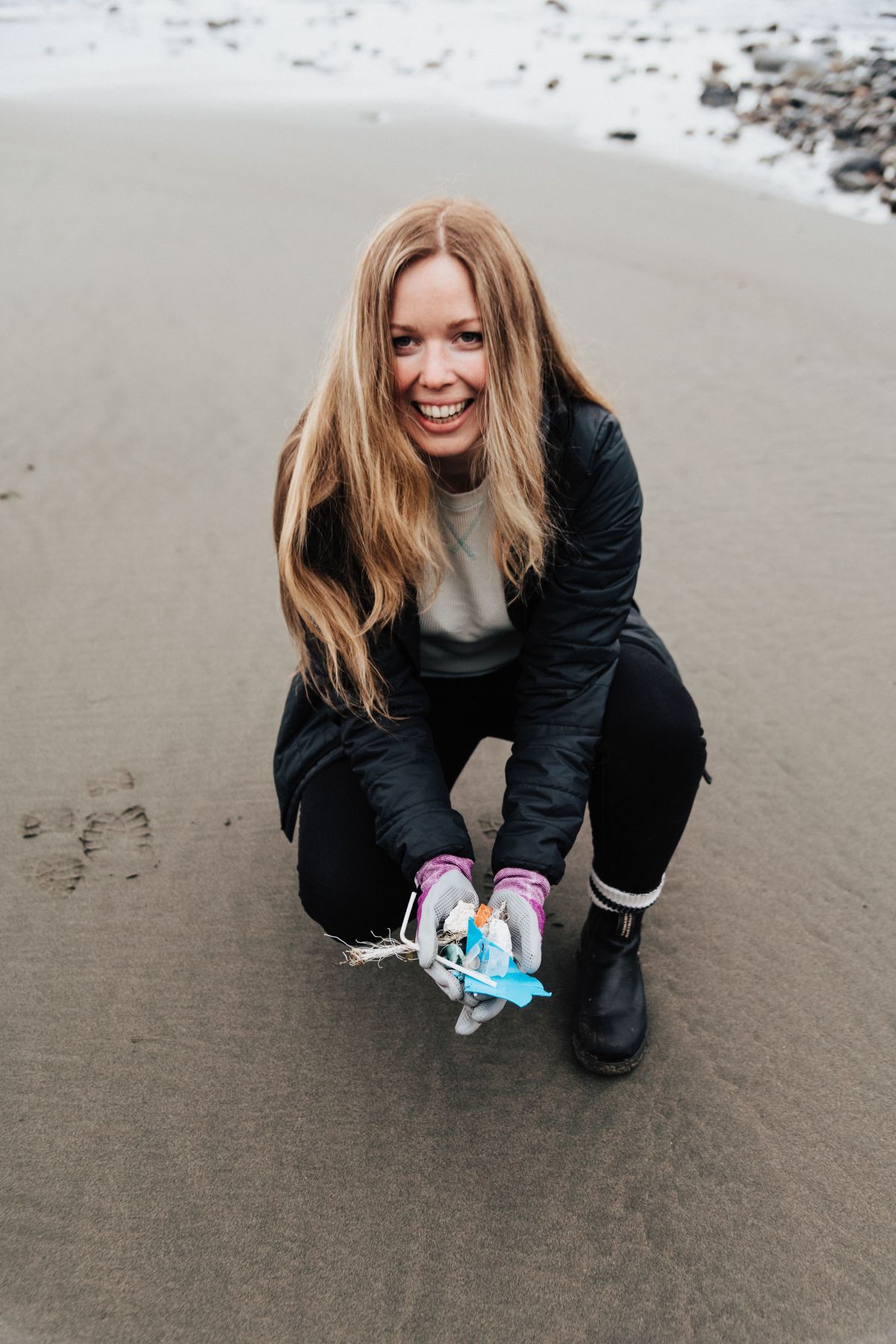 Photo Credits: Agathe Bernard
Photo Credits: Agathe Bernard
Can you tell me a bit about yourself?
Any water-based activity – you’ve got me hooked – whether that’s freediving, paddleboarding or even painting. I have always loved the water, and being outdoors. I grew up spending summers at a lake in Canada, and was fortunate enough to be around nature in my childhood.
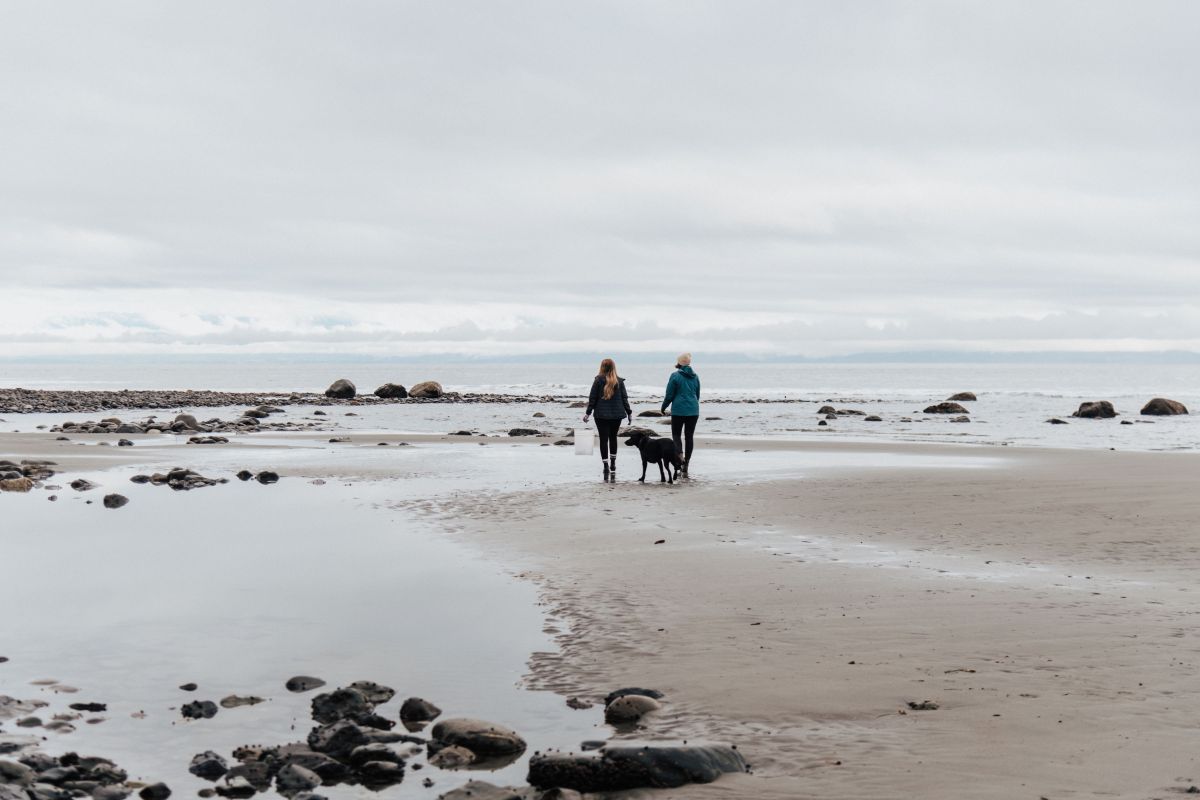 Photo Credits: Agathe Bernard
Photo Credits: Agathe Bernard
I trained as a graphic designer at college, and then went on to focus on photography. I love to tell stories, and have always written alongside my photography. Since returning from my voyage with eXXpedition I have continued to write, focusing on conservation and bringing science and storytelling together to educate and raise awareness.
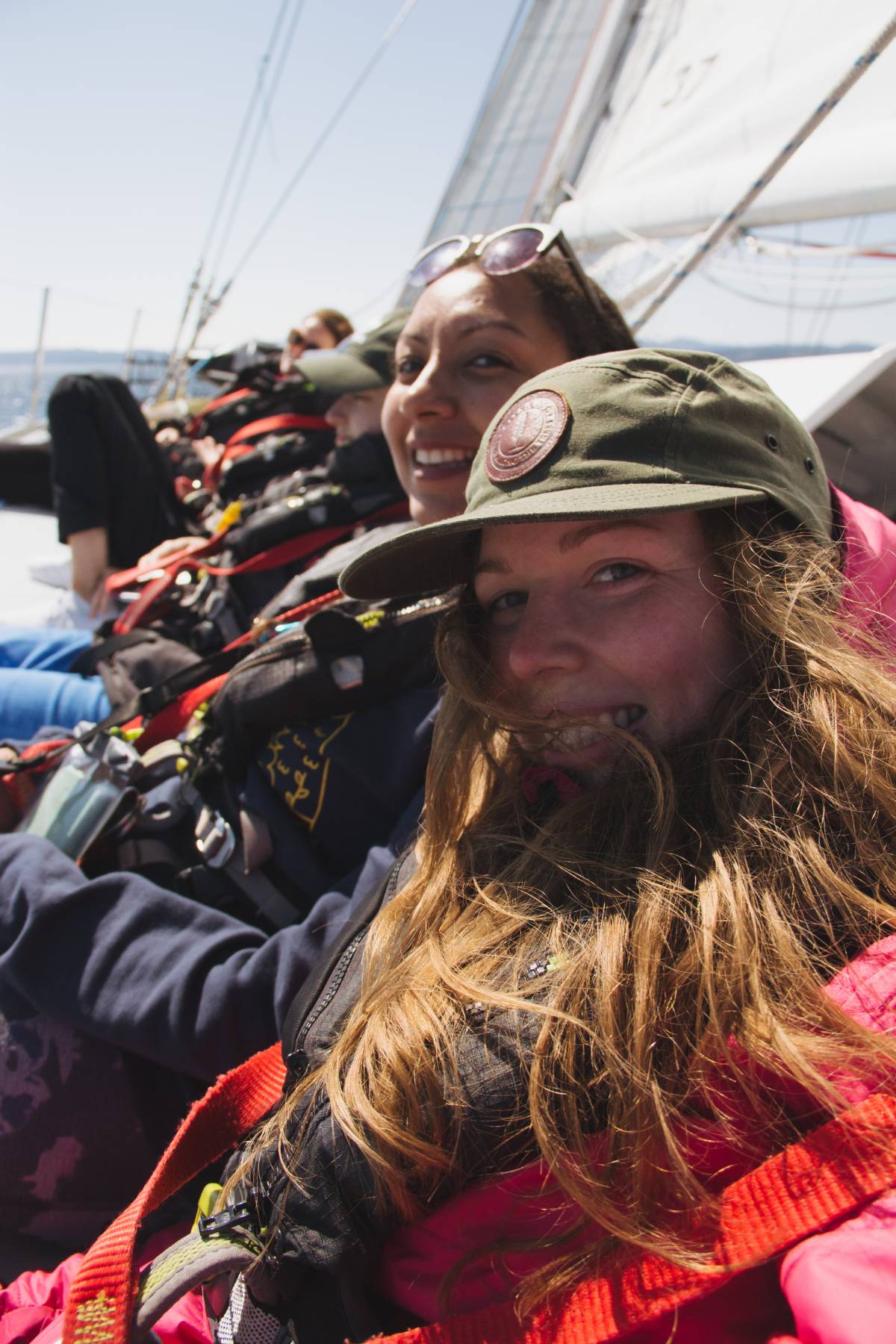 Photo Credits: Nikkey Dawn
Photo Credits: Nikkey Dawn
How did you end up joining eXXpedition?
As a photographer, I was really interested in documenting eXXpedition’s research. I wanted to help engage people through visuals, and use visual storytelling as a way to create change. I think I just stumbled across them on social media, and decided to apply.
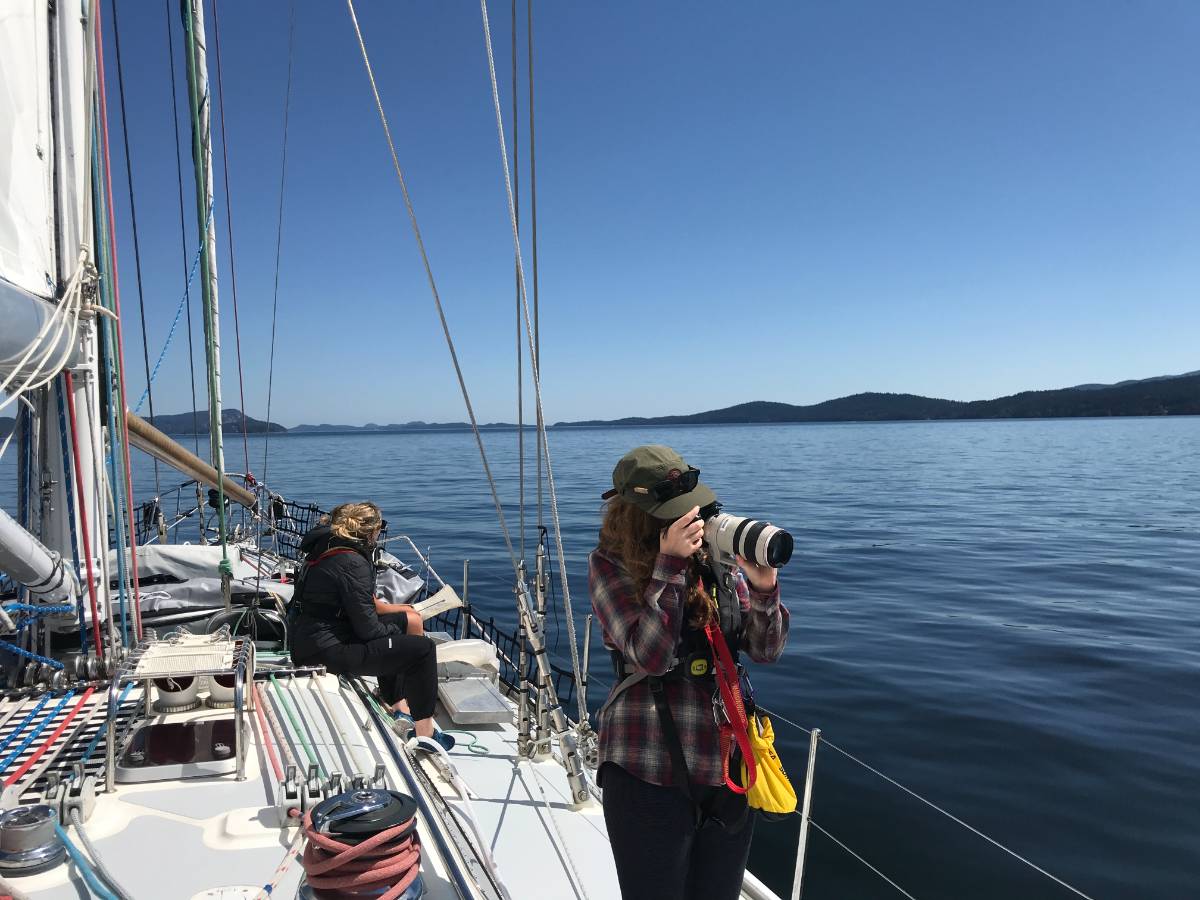
So, what makes a good photograph?
Good photographs are the ones that make you feel. Of course, that is entirely subjective, but any photograph that tells a story, in my opinion, is the best. The ones that are perspective-changing are not necessarily the most technical ones, but rather the ones that communicate the most meaning.
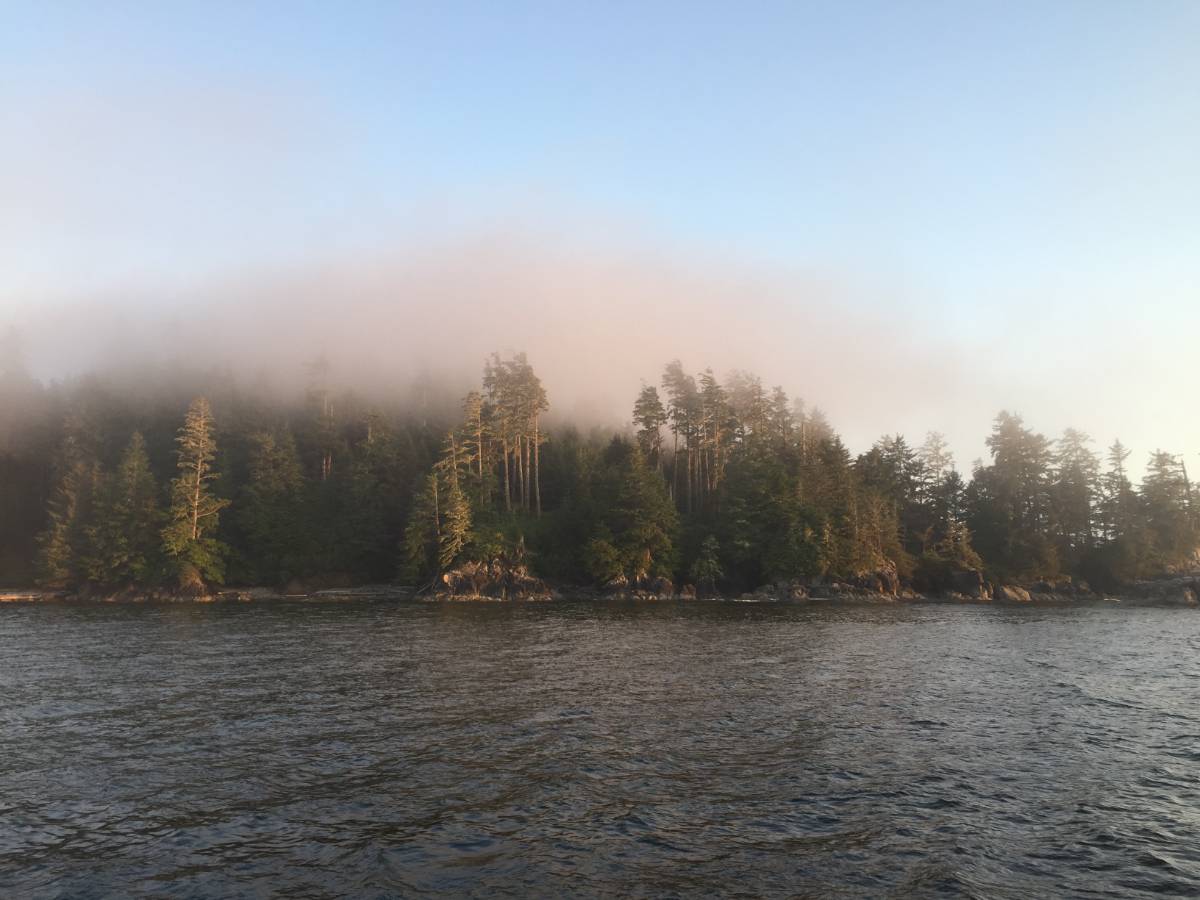
What did you enjoy most about your voyage, and what did you learn?
The thing I most enjoyed about my voyage has to be the people. We were all there for serious reasons, and that was really exciting, but the in-between moments were incredibly special, and ones I will never forget.
I think the most memorable part of the voyage was sailing into The Broken Group islands. The area was heavily impacted by debris from the 2011 Japan tsunami. It really hit me, just how far our plastic waste travels and how natural and not-so-natural disasters play a role.
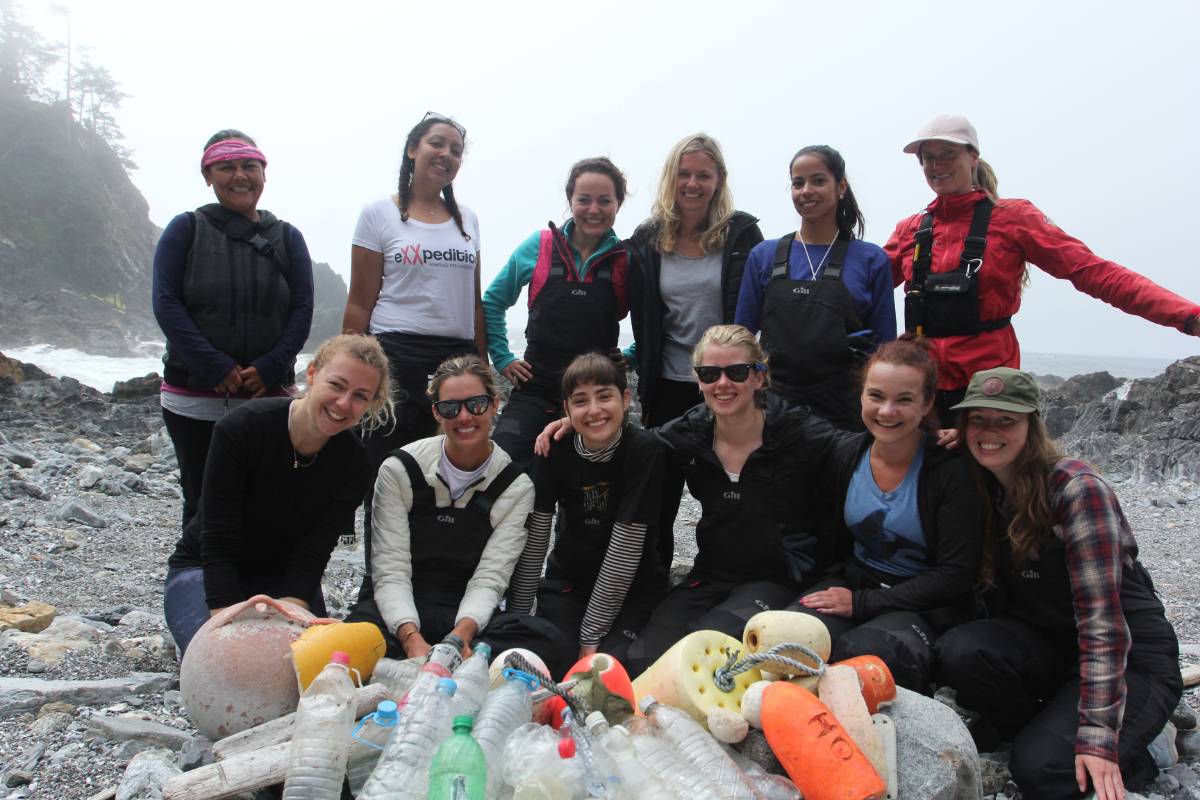 Most importantly, for me, eXXpedition changed my relationship with science. It had always been something I shied away from in school. Art came easily to me and once classified as a “creative”, I always felt discouraged from pursuing the subjects that came harder to me like math or science.
Most importantly, for me, eXXpedition changed my relationship with science. It had always been something I shied away from in school. Art came easily to me and once classified as a “creative”, I always felt discouraged from pursuing the subjects that came harder to me like math or science.
Marine science always interested me, but I was always too intimidated to explore it further. The relationships I formed with the scientists on our crew – Imiy and Laura especially – were very special. They were kind. They were patient. And, most importantly, they trusted us. Those relationships gave me the boost I needed to believe I could understand the science and start writing about environmental issues confidently. And, I am now connected with a great network of ambassadors working in the sciences I can reach out to with questions.
“Marine science always interested me, but I was always too intimidated to explore it further.”
How would you describe your superpower?
I think it has to be storytelling – more specifically, telling the stories of the natural world and how we are all interconnected.
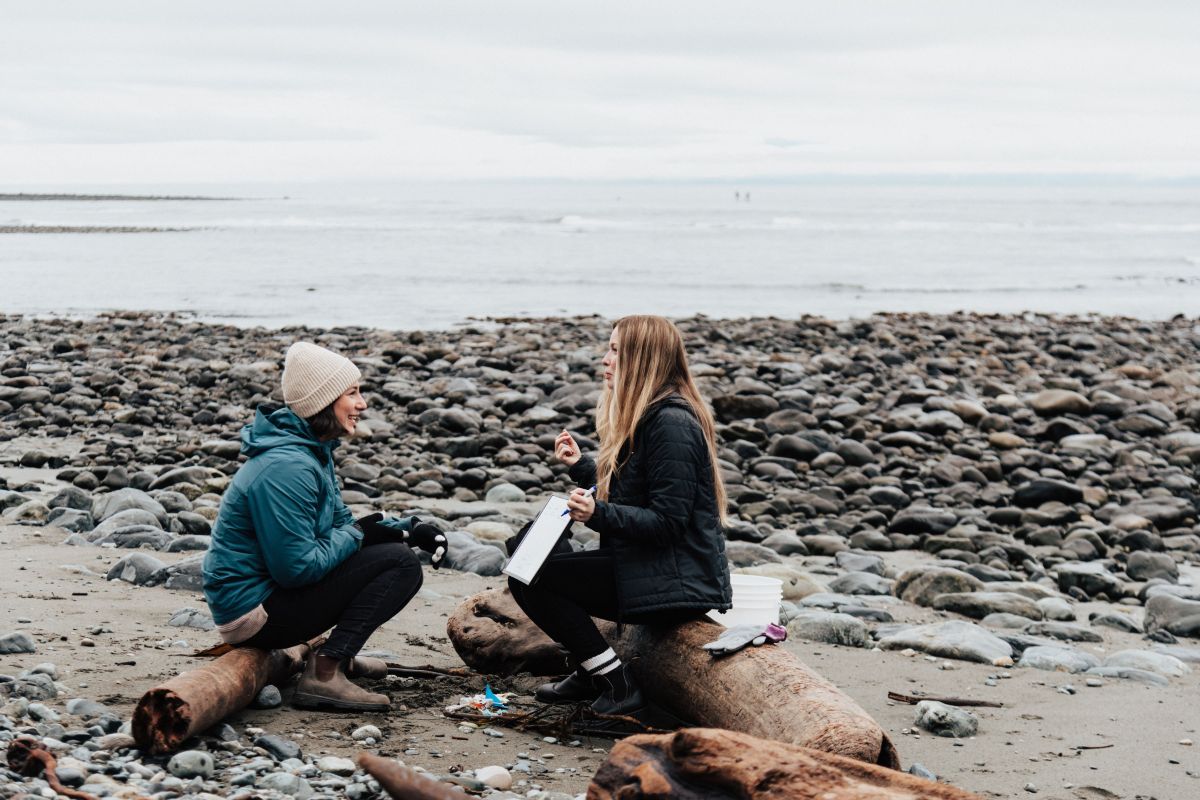 Photo Credits: Agathe Bernard
Photo Credits: Agathe Bernard
What have you been up to, since your Voyage, and has the Voyage had any influence?
Prior to eXXpedition, my writing had always gone alongside my marketing and graphic design jobs, which often revolved around ecotourism. And before that I had worked as a nature interpretive and outdoor guide. So, I had always managed to find some way to encourage people to connect with nature through my work.
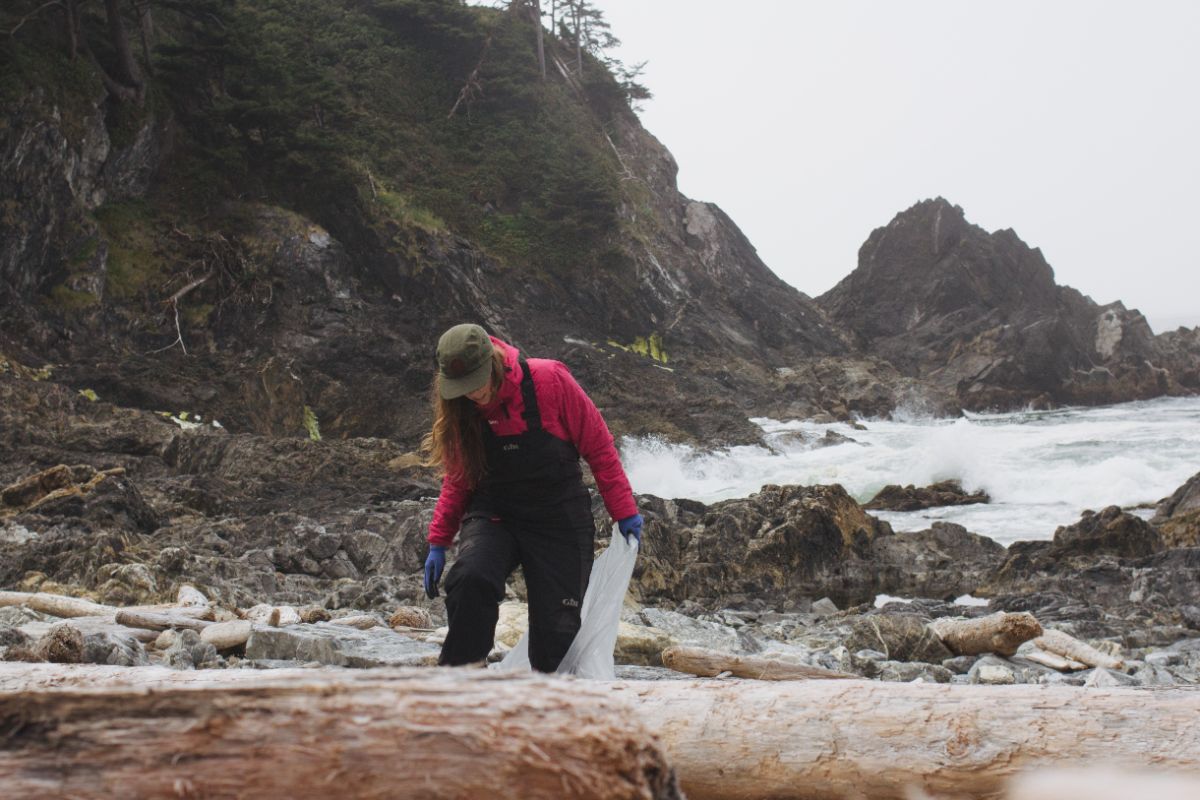 Photo Credits: Nikkey Dawn
Photo Credits: Nikkey Dawn
“I wanted to help engage people through visuals, and use visual storytelling as a way to create change.”
After eXXpedition, I was eager to make conservation, and science, more central to my writing. Having broken the self-limitations I had previously set for myself, the scientific research that once overwhelmed me, excited me instead. I have written about a broad range of conservation issues from old-growth logging to over-fishing, but ocean plastic pollution is definitely where I feel most comfortable, given all the first-hand experience and continued learning opportunities eXXpedition has given me.
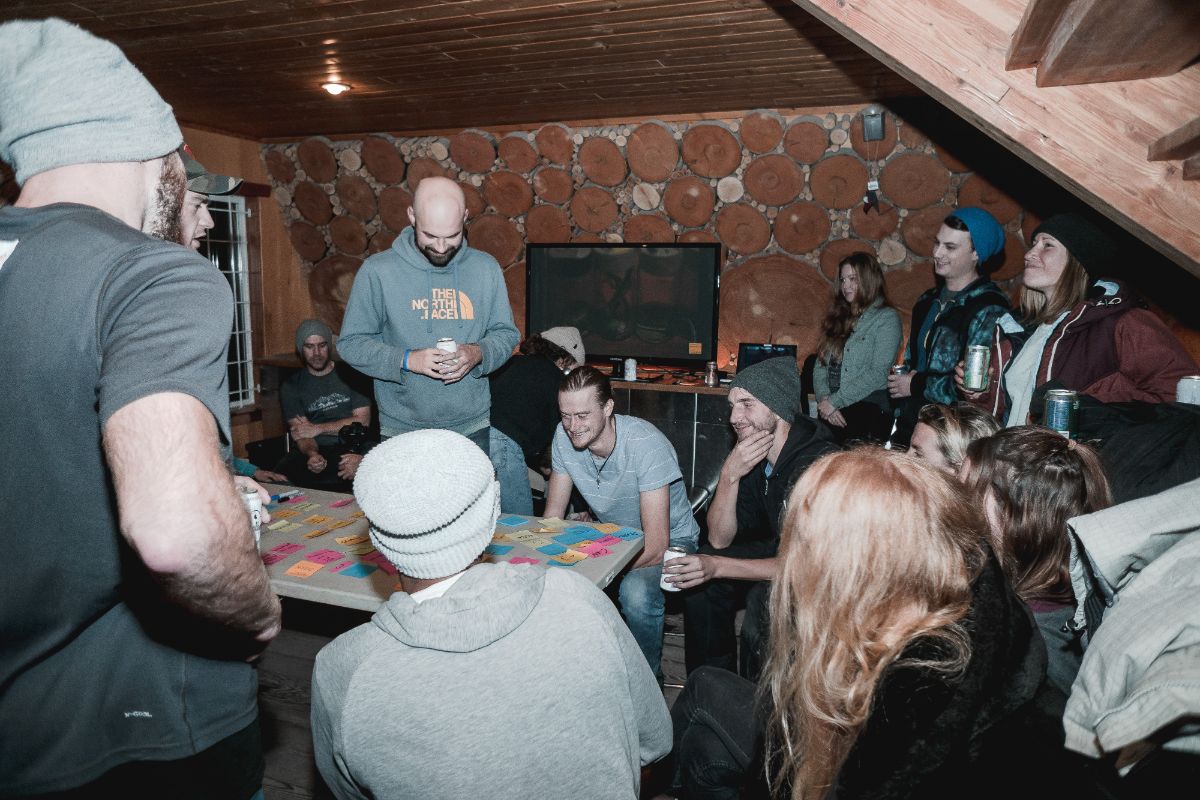 Photo Credits: Karina Erhardt
Photo Credits: Karina Erhardt
Alongside my writing, I also do outreach with people who share my interest in water. I have partnered with various water-sports based community groups. I deliver customized versions of the SHiFT workshops that we learnt on our voyages to them, always tailoring the workshops to the audience I am working with.
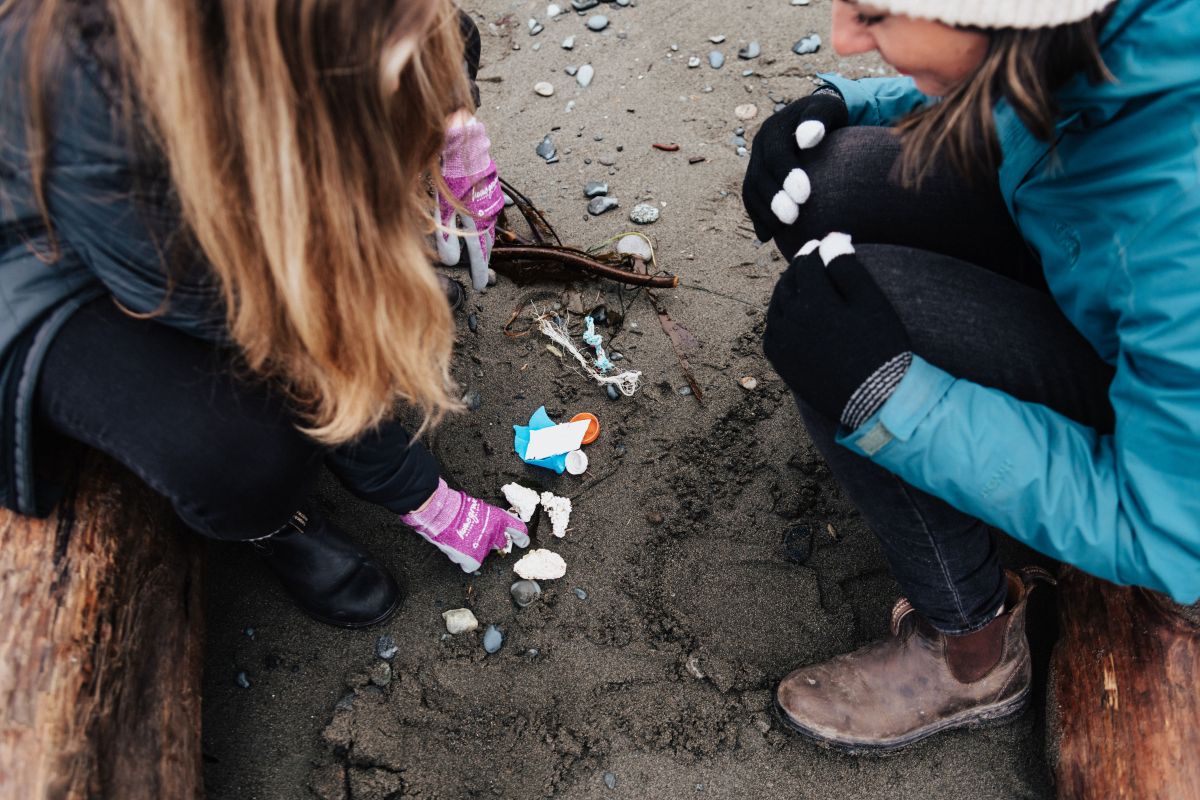 Photo Credits: Agathe Bernard
Photo Credits: Agathe Bernard
I also educate through AirBnB Experiences, which is a great way to teach people about the ocean, and how to keep it clean especially with people who may not have as much experience with the water.
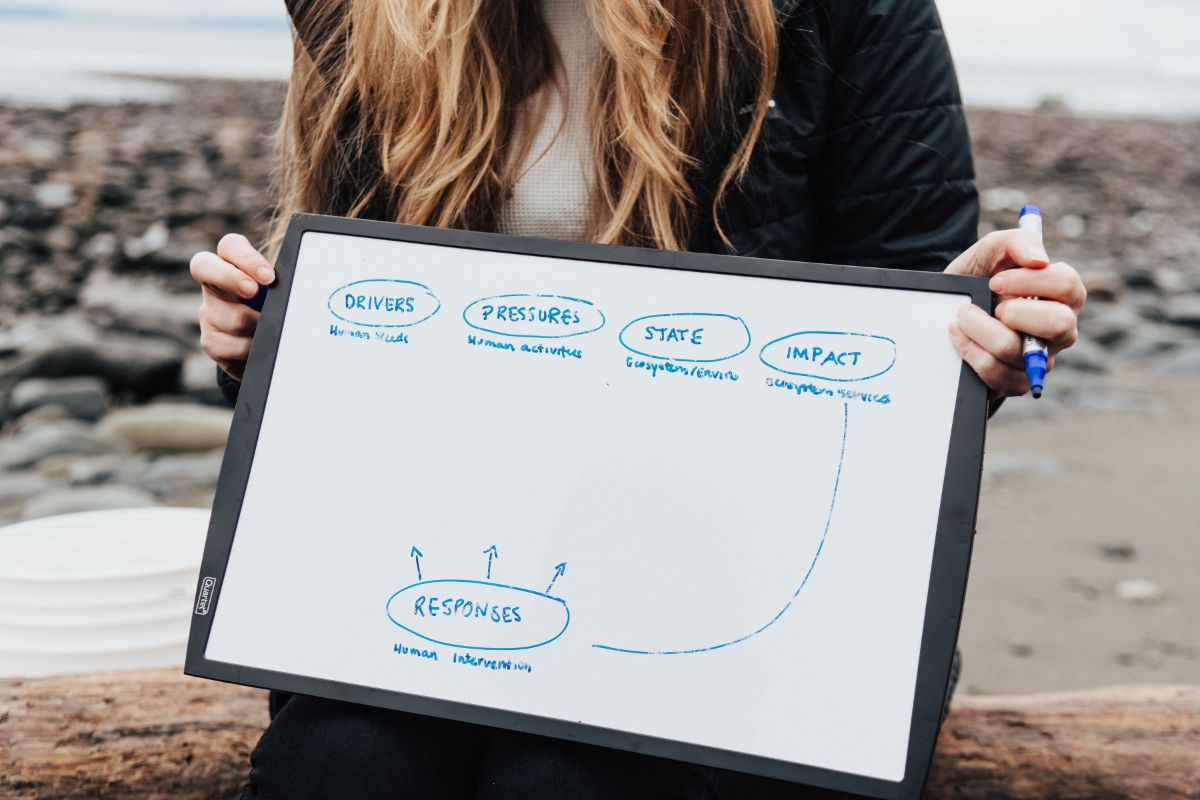 Photo Credits: Agathe Bernard
Photo Credits: Agathe Bernard
What Are You Most Proud To Have Achieved?
In 2020, I took part in the UN Environment Programme’s Marine Litter course. I was eager to understand the problem more. So, when Emily had advertised the course to us, I decided to give it a go. The course walked through a whole range of issues, from the contribution of shipping policy to ocean pollution, to the science behind what plastic does to our bodies.
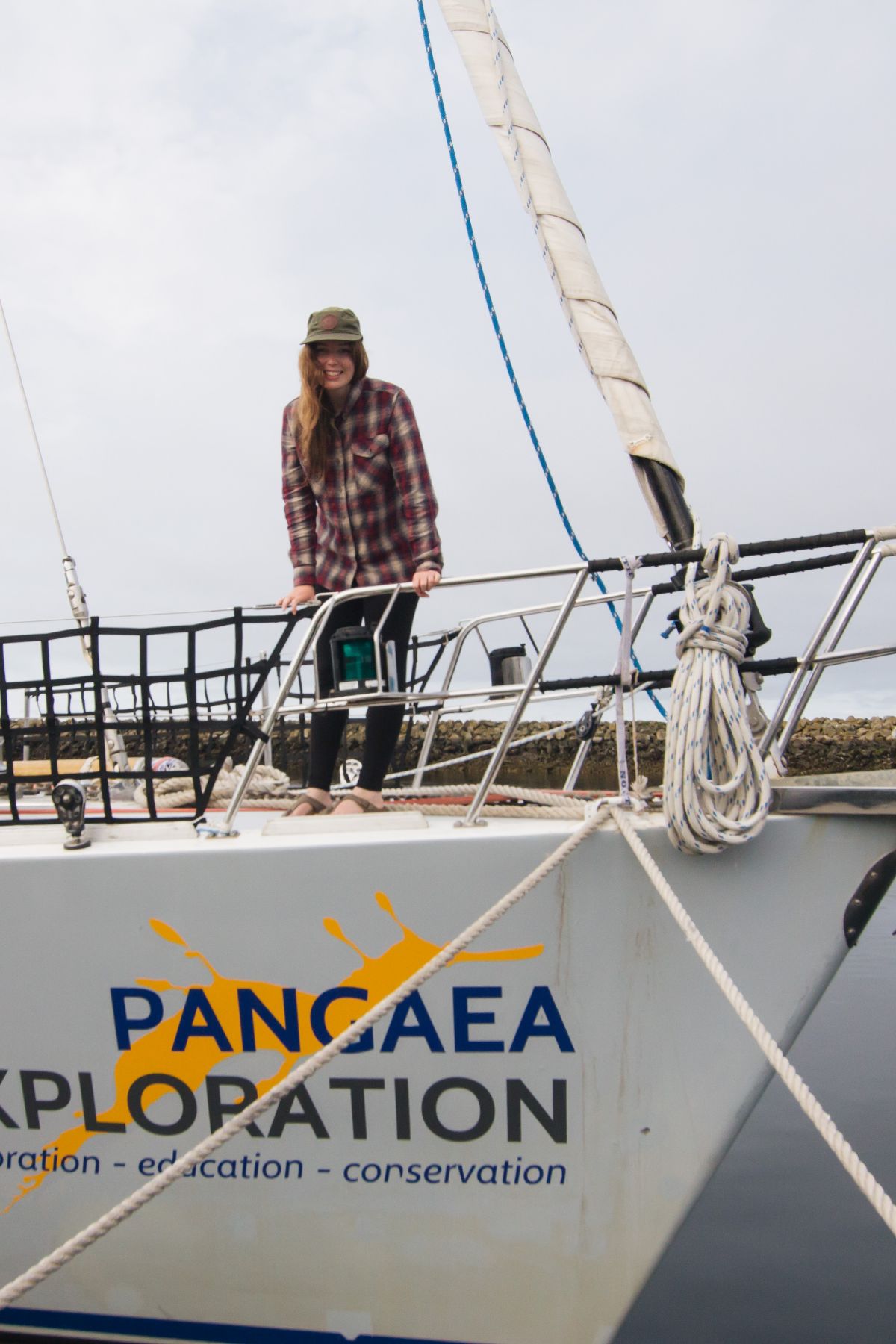 Photo Credits: Soraya Abdel-Hadi
Photo Credits: Soraya Abdel-Hadi
There were a number of equations we had to work through for prediction and calculation models, and while it reaffirmed for me my superpower is on the communications side, I was proud to have completed those more challenging elements of the course for me.
What interested you most during the course?
I loved it all, but found the social and cultural elements particularly fascinating: understanding why and how behaviour towards nature, and plastic, has formed, and in turn, by understanding that behaviour, we can hope to change. This made me think more widely about the idea of eco-psychology.
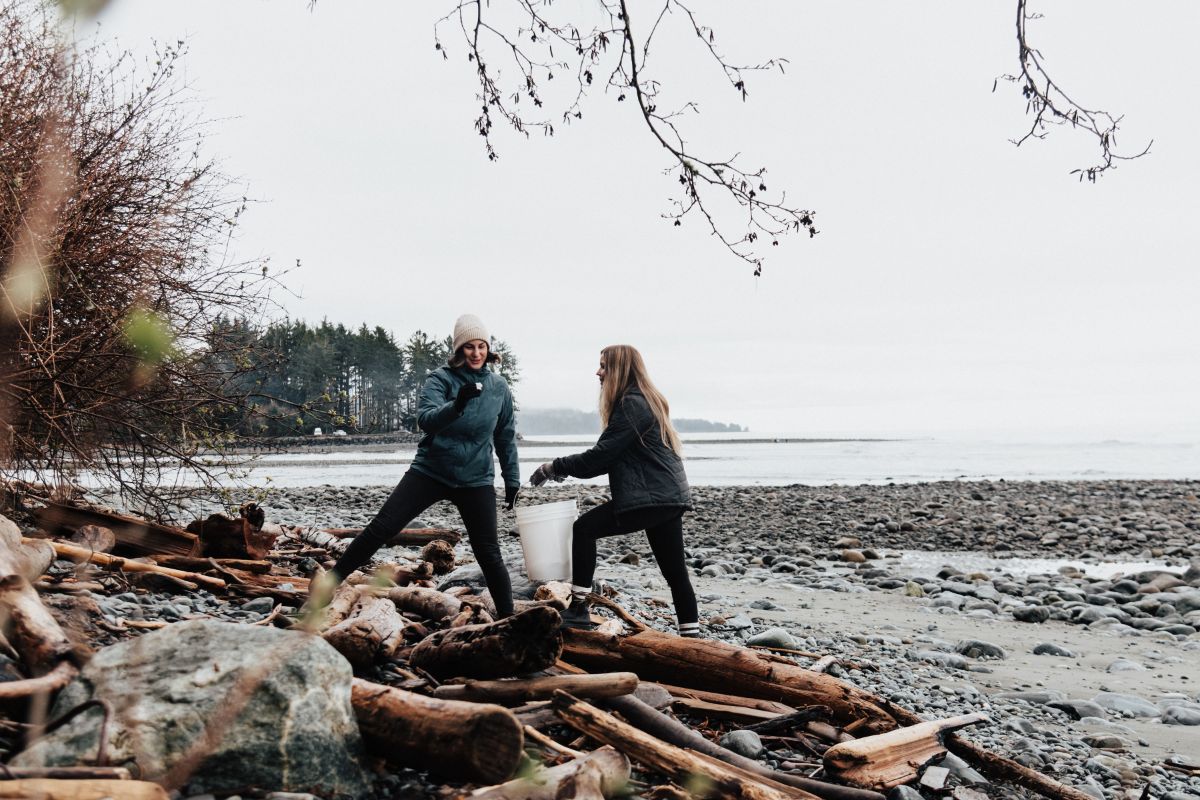 Photo Credits: Agathe Bernard
Photo Credits: Agathe Bernard
By that, I am referring to the affects nature has on us as humans and how through different historical events, systems of oppression, changes in thoughts and beliefs and so on we have created and widened a disconnect of us from nature.
What Are Your Plans Going Forward?
I am going to Mexico in January for a month to begin writing a book. I would love to partner with one of the local diving operators there on a clean-up, but I am not thinking too far ahead. I am just excited to explore, see what solutions are already in place and if there are any projects I can contribute to.
“It is so easy to get caught up in the negative when it comes to plastic pollution … Belonging to eXXpedition is the opposite.”
What Keeps You Hopeful About The Future Of The Ocean?
The Ambassador Network. The fact that everyone I have met through the network is working towards a common goal, but through such different approaches. I think it is so easy to get caught up in the negative when it comes to plastic pollution, or environmental issues in general. Belonging to eXXpedition is the opposite. Being able to see what people are doing – each from their unique corner of the problem – is incredibly uplifting.
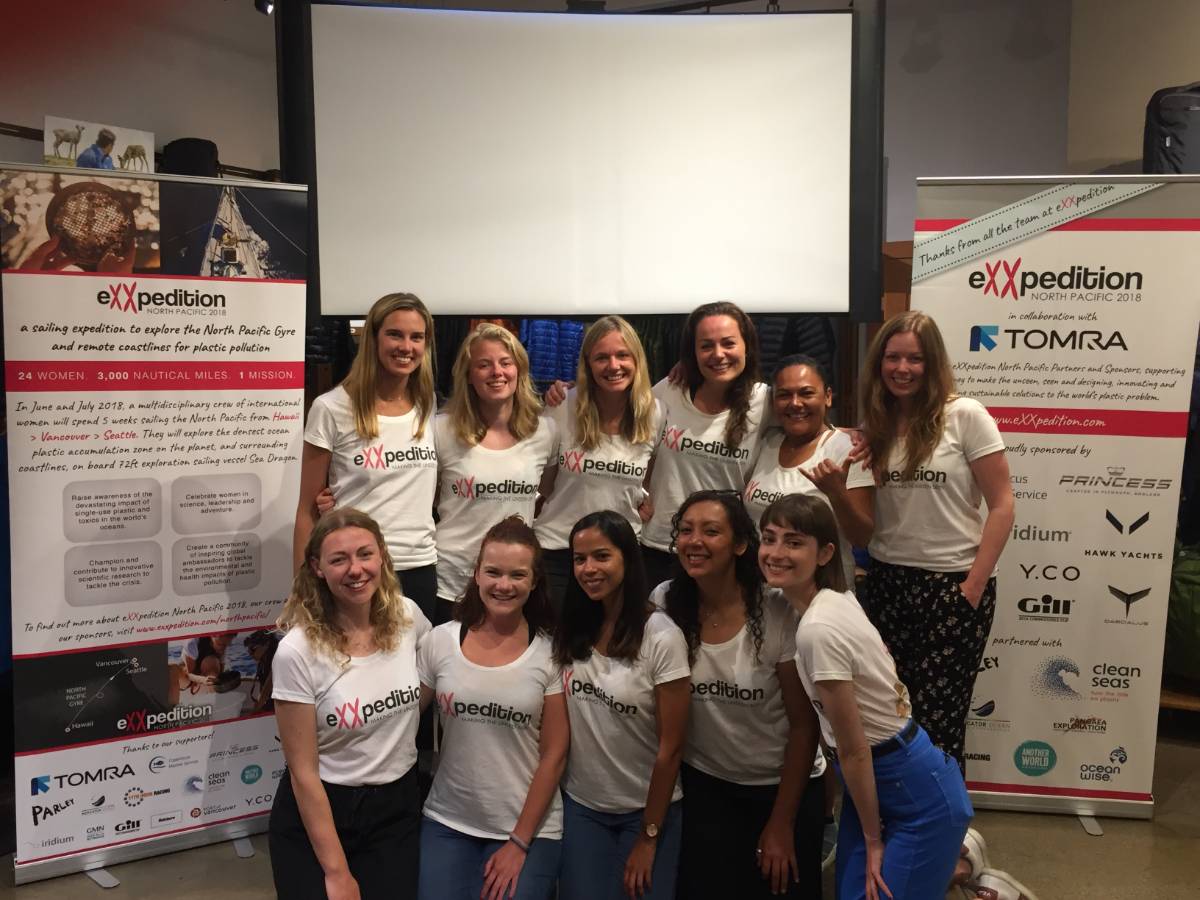 Photo Credits: Nikkey Dawn
Photo Credits: Nikkey Dawn
If You Could Give One Message To The World, What Would It Be?
If everyone were to find their sense of belonging to nature, I think the roots of so many problems could begin to be fixed. We would make different decisions, and take different actions.
Doing the work to decondition ourselves of the colonial ways of thinking about nature, I think, is the most powerful step we can each take towards widespread change.
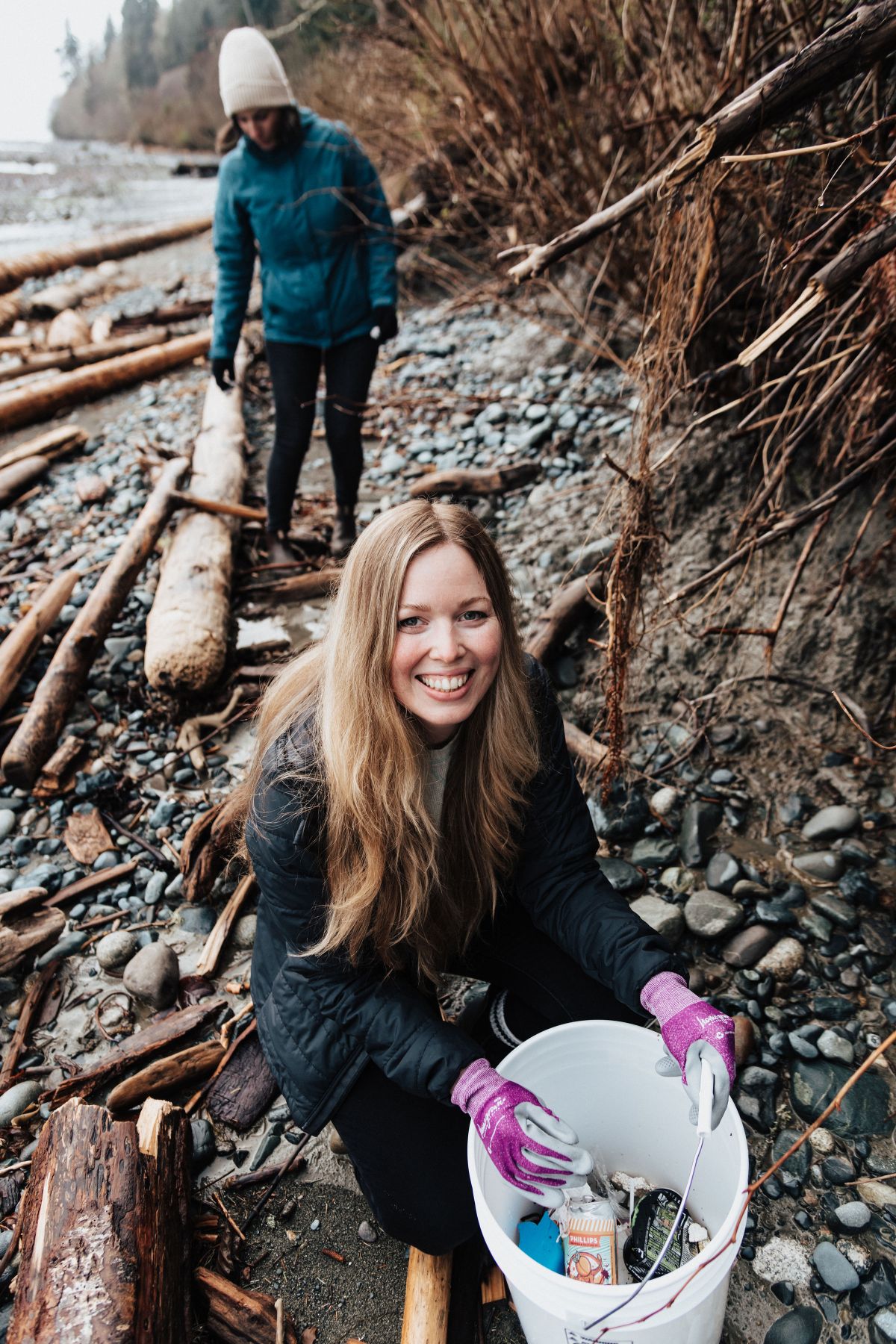 Photo Credits: Agathe Bernard
Photo Credits: Agathe Bernard
“I think it is so easy to get caught up in the negative when it comes to plastic pollution … Belonging to eXXpedition is the opposite”
